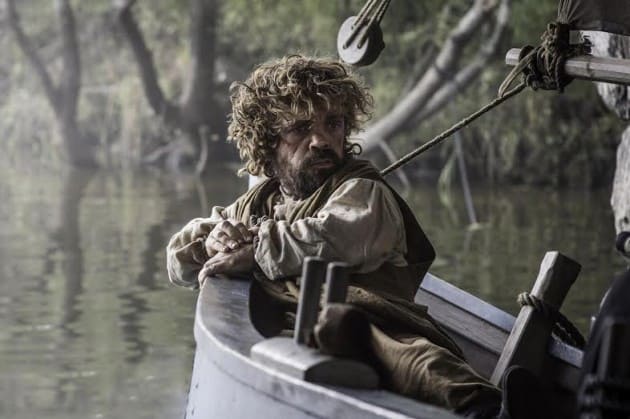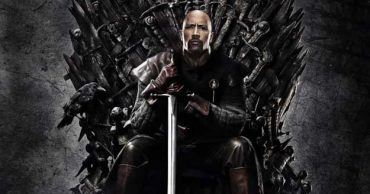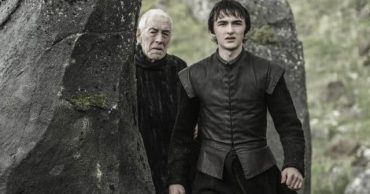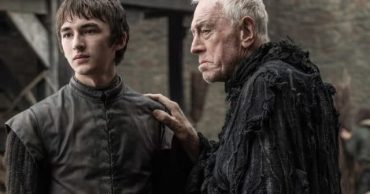
Maturity is the name of the game this season on Game of Thrones, which continues to shift its focus to the next generation of leaders and power players in Westeros with “Kill the Boy,” by far the longest episode of the season (clocking in at nearly 60 minutes). Thankfully, that time is well spent: from inside the walls of Meereen to the castles of Winterfell, “Kill the Boy” places a number of important choices in the hands of major characters, spending the hour on their contemplations and subsequent decisions on tough, but important matters.
It does so with good and bad characters, young and old, but as Stannis makes quite clear to Samwell, there’s nobody too old or too smart to learn something new. Janos’s death a few episodes go was not only a fat-trimming move, but an act that kills two birds with one stone, an example of Jon’s maturity into a leader (echoing his father’s choice to kill a Night’s Watch member back in the pilot), and showing an example of what happens to those unwilling to adjust to the new world, making the necessary sacrifices to continue living. “Kill the Boy” takes that story a step further, with Jon deciding to free the last remaining wildling prisoner, and heading north of the Wall to convince the rest of the wildlings to march South. It’s a moving scene, watching Jon talk about the realms of men and how, for thousands of years, the leaders of the Night’s Watch have ignored that decree, warring with the wildlings to keep them away from the safe havens lying south of the Wall.
That decision comes hand in hand with Stannis’ choice to march South and attempt to take Winterfell back from the Boltons, who remain as creepy as ever. It speaks to how well written Ramsay is that the show can integrate his own slow, horrible maturing process into the fold alongside Sansa’s. “Kill the Boy,” while it references Jon’s conversation with Aemon, can be applied in a multitude of ways with the scenes inside Winterfell. There’s the ground swell of “The North Remembers” supporting the newly-empowered, driven Sansa; there’s Reek, a poor excuse for a man built from the remnants of the boy Theon Greyjoy (by the way: where’s his sister?); and of course, there’s Ramsay, who continues to drown in his own sadistic tendencies, offering up Reek as a “gift” to Sansa, his new form penance for participating in the murder of Sansa’s brothers and Ramsay’s own immature tendencies (which we see again, when he threatens his mistress).
And from there, “Kill the Boy” continues to spread throughout Westeros, the only scene not fitting in with this theme the visit from the Stone Men that Tyrion and Jorah are ambushed by, but in an episode of heavy contemplation, a little action interlude is much welcomed (plus, we can already see Tyrion starting to wear down his captor, who even begins talking to him as they pass through Valyeria and The Doom). Their surprise attack is the one action sequence in the episode. There is another death, but that comes via dragon as Dany learns important lessons about being a leader (and a mother ensuring her dragons are kept on a very strict diet, I might add). In the wake of Barristen’s death, Dany faced a choice: eliminate the family monarchs organizing the Sons of the Harpy and risk revolt, or make peace by allowing fighting pits. Yet even that decision isn’t going to be enough, which pushes Dany to offer her hand in marriage as a peace offering to the former leaders of Meereen. If anything represents her maturity, it’s this, understanding the political value of her actions, thinking forward rather than resting on her heels, and continuing to react to the decisions of her counselors (in a great scene, her assistant/translator and her discuss Dany’s decision-making process as a leader of men), which draws a nice parallel between her and Jon, as the two of them try to figure out how to resolve difficult, complex, and extremely long-lasting conflicts.
I really love the phrase “Kill the boy,” both as an episode title and a philosophy inside the world of Westeros. It’s so fitting that this world appropriates maturity with death, a constant reminder that the king is held by the leaders/conquerors/uniters of all men in this world, the boys and girls of Westeros unwilling to change with the times, often doomed to face a fate worse than death. Every day spent living (no matter where, or what the circumstance) is an opportunity to move forward and upward, and as the next generation of Westeros’ would-be leaders are beginning to grip this idea, Game of Thrones only becomes more and more fascinating.
[Photo credit: Helen Sloan/HBO]
 Follow Us
Follow Us





